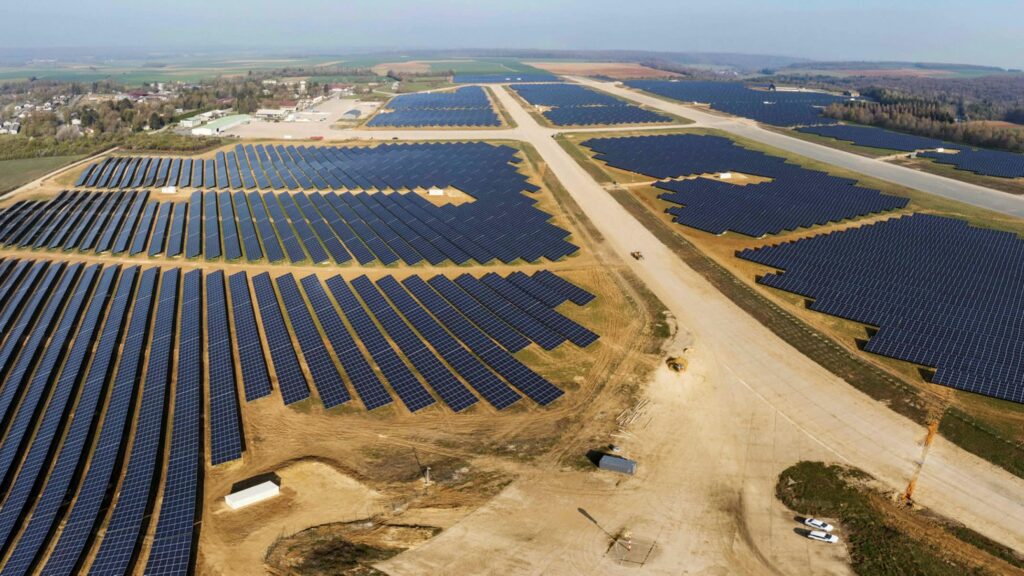WHO chief: the G20 must invest in a healthier, greener post-pandemic world


The writer is director-general of the World Health Organization
Extreme heat is ravaging North America, leaving hundreds of people dead. This is the climate crisis in action, powered by our addiction to fossil fuels, and with real and devastating consequences for our health. Despite the now undeniable impact, however, G20 governments have committed close to $300bn in stimulus funding to support fossil fuel energy since January 2020.
As finance ministers from the Group of 20 gather in Venice this week to advance the G20’s green agenda, the need for their collaboration has never been more vital.
G20 countries are facing two hefty challenges; first, charting a path out of the acute phase of the pandemic and, second, kick-starting the global economy after Covid-19 in a way that avoids exacerbating the climate crisis.
Both challenges will require global solidarity and financial commitments to match them.
In recent months, my UN colleagues and I have repeatedly called on advanced economies to develop an accelerated co-ordinated strategy, backed by new financing, to vaccinate the world in a fair manner. The formation of a multi-agency task force on Covid-19 vaccines, therapeutics and diagnostics for developing countries will add much-needed energy, ambition and co-ordination to the pandemic response. More than 25 world leaders are calling for a global pandemic treaty to improve preparedness and response, to be discussed at a special session of the World Health Assembly in November.
The commitments at the G7 summit in Cornwall last June, which saw a pledge to share 870m Covid-19 vaccine doses in 2021 and 2022, were a significant step in the right direction, but these promises must be realised immediately if they are to address the world’s growing vaccine inequity. Vaccines donated next year will come far too late for those dying today. We need one billion doses delivered to low and middle-income countries by the end of this year in order to vaccinate those most at risk of severe disease and death.
In the longer term, however, global solidarity also means advanced economies need to invest in resilient, just and green recoveries. Stimulus packages must improve public health and be pollution-free and climate-safe. They must also avoid locking in economic development patterns that will do permanent damage to the ecological systems that sustain human health and livelihoods.
Since the pandemic began, close to half of G20 stimulus spending on energy-producing and consuming activities has gone to coal, oil and gas. This is terrible news for our health. Fossil-fuelled air pollution causes about 13 premature deaths a minute, or 7m every year. It is the silent pandemic, the consequence of decades of inaction despite stark warnings from scientists.
This must, and can, be stopped. Investing now to rapidly scale up clean energy technologies and infrastructure is one of the greatest contributions governments, companies and investors can make to improve long-term public health. It will also create millions of new jobs, boost growth and wellbeing globally and help avoid the worst health impacts of the escalating climate crisis.
There are examples of how this could work. The WHO, in collaboration with Gavi, the vaccine alliance, and Unicef, the UN Children’s Fund, is providing solar panels to power the fridges needed to keep vaccines safe at health facilities without mainstream electricity supply. This also makes hospitals more resilient to outages from unstable grids and closes the energy gap that exists for many health facilities.
Another example is the health programme designed by the WHO in partnership with the UK government, which holds the incoming presidency of the COP26 UN climate conference this November. This calls on governments to build health systems that are both climate resilient and low carbon.
Projects such as these, with adequate support, can be scaled up rapidly to safeguard our health and our climate. They have the added benefit of keeping fossil fuel fumes out of our lungs and the world’s atmosphere.
The damage from air pollution cannot be offset by green actions somewhere else in the world, or at a later date. Instead, it must be prevented. Cutting all permits, subsidies and financing for fossil fuel use is a crucial first step.
This would free up significant budgets that could be redirected to healthy, green recoveries. The G20 can send a clear, aligned signal on greening their own recoveries, while providing significant funds and incentives to other governments to do the same.
It is time to invest in the future we want. That means financing a healthier, fairer and more resilient world.